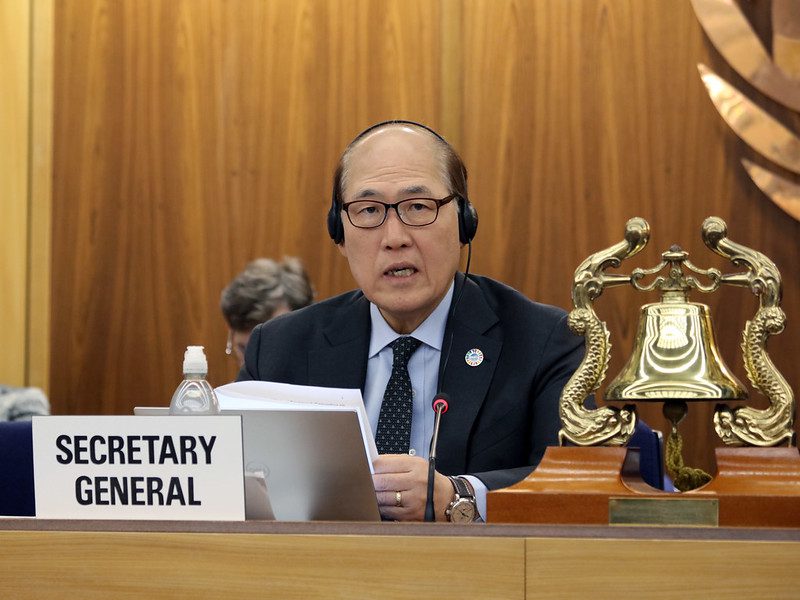Supreme Court Tariff Ruling Could Come As Soon As Friday
The US Supreme Court scheduled Friday as an opinion day, indicating that date will be the first chance for a ruling on President Donald Trump’s global tariffs.

The International Maritime Organization (IMO) on Friday concluded its latest Marine Environment Protection Committee meeting, known as MEPC 79. Part of the IMO Council, the MEPC is responsible for matters concerning the prevention and control of pollution from ships.
Several matters were on the agenda at MEPC 79, taking place in-person this week at IMO headquarters in London, such as adopting mandatory MARPOL amendments concerning regional reception facilities in Arctic waters, changes to garbage record books and bunker delivery note regulations, and designating of the Mediterranean Sea, as a whole, as an Emission Control Area for Sulphur Oxides and particulate matter.
But the star of the show, so to speak, was the revision of the IMO’s strategy to reduce greenhouse gas emissions from ships. So far, the IMO has set only an initial strategy to reduce greenhouse gas emissions from ships by 50% by 2050, compared to 2008 levels. But a revised final strategy, due to be finalized at the MEPC’s 80th session next summer, will increase the level of ambition, with a more stringent GHG reduction target—ideally to net zero emissions by 2050, which would align the shipping industry with the Paris Agreement goal of keeping global warming to no more than 1.5°C compared to pre-industrial levels.
“I note and welcome the progress made. It cannot be stressed enough how crucial it is that we keep the momentum and deliver an ambitious and fair, revised IMO GHG Strategy at MEPC 80 next year,” said IMO Secretary Kitack Lim in his closing remarks.
John Butler, President and CEO of World Shipping Council, said discussions this week surrounding IMO’s GHG Strategy show promise.
“There is a growing base of support in the Committee to proceed with development of a GHG levy as well as development of a GHG Fuel Standard. Significant differences remain to be resolved on the use of tank-to-wake and well-to-wake GHG factors and the use of funds, but there is a growing sense of agreement on the principal mechanisms that are critical to addressing the GHG challenge at the global level,” says Butler.
“As such we are seeing significant progress on a number of the Six Critical Pathways identified by WSC as vital to a successful decarbonisation of shipping. On the whole, the outcome of MEPC 79 is encouraging as it reflects a growing base of support for major policy regulations at the global level,” Butler adds.
Guy Platten, the Secretary General of the International Chamber of Shipping, says the industry needs some clarity in order to move forward.
“The shipping industry urgently needs clear market and regulatory signals to reduce the investment risk currently surrounding alternative energy sources and technologies,” says Platten.
“We cannot take our foot off the accelerator, at this moment in time, the cooperation and dialogue that is the trademark of IMO, and not least this Committee, will be more important than ever in delivering on what is expected of us to address climate change, but also biodiversity loss and marine pollution,” assured IMO Secretary General Lim.
Read Next: Moving Ahead on GHG Reductions, Green Corridors and Onboard Carbon Capture

Sign up for gCaptain’s newsletter and never miss an update

Subscribe to gCaptain Daily and stay informed with the latest global maritime and offshore news
Essential news coupled with the finest maritime content sourced from across the globe.
Sign Up